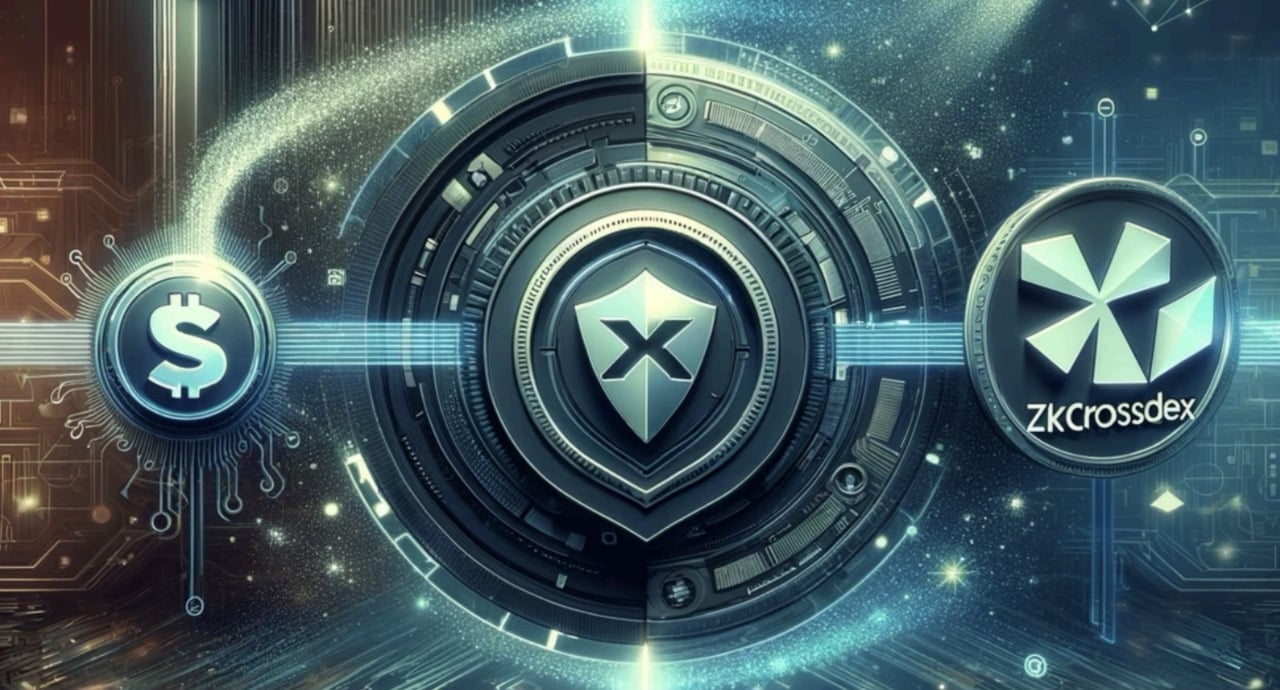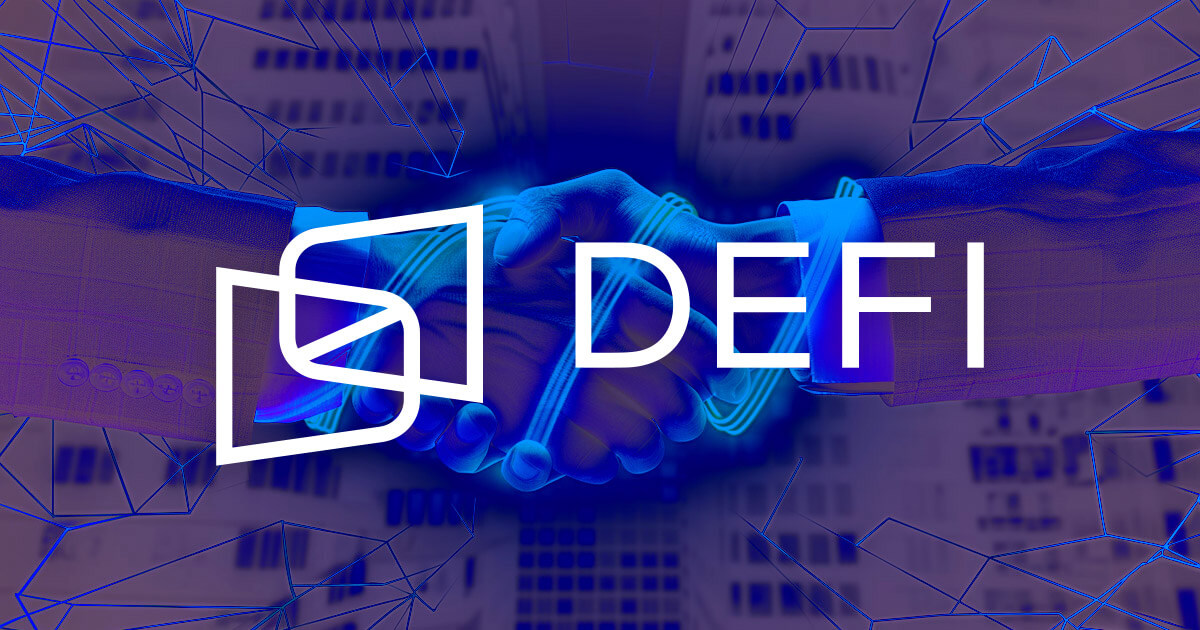DeFi
How Partisia Blockchain and zkCrossDEX Address Security Interoperability and Scalability Challenges

The decentralized finance (DeFi) space, while revolutionary, has not been without its challenges. Issues such as security, scalability, and complexity of cross-chain operations have hindered broader adoption and efficiency. However, the recent partnership between Partisia Blockchain and zkCrossDEX from zkCross Network is expected to tackle these critical issues head-on, paving the way for a new era of security, interoperability, scalability, and usability in DeFi.
The Market Problem: Privacy and Leadership in DeFi
One of the biggest problems with DeFi is the lack of security, interoperability, and scalability. On several occasions in the past, hacks have taken place and funds have been stolen. These large-scale attacks resulted in the theft of over $1 billion in funds in 2023 alone.
Additionally, the complexity and inefficiency of moving assets between different blockchain networks poses another significant obstacle. Traditional DeFi solutions often struggle with interoperability, leading to fragmented liquidity and cumbersome asset transfers. These challenges make DeFi less accessible and less efficient, especially for non-technical users.
Finally, there are scalability issues around blockchains, which prevents DeFi applications from growing beyond a certain number of users at the same time. High gas costs and network outages are some of the others
Problems with blockchains and even with various types of deployment technologies, this continues to be a long-term problem with no elegant solution.
The solution: MPC and zkCrossDEX from Partisia Blockchain
Enter zkCrossDEX, a zero-knowledge cross-chain decentralized exchange developed by zkCross Network and powered by Partisia Blockchain’s Multi-Party Computing (MPC), BYOC tokenomics and True Sharding technology. This integration is poised to solve pressing security interoperability and scalability issues, setting a new standard in the DeFi industry.
Improved security with multi-party computation
At the heart of Partisia Blockchain is our MPC technology and $MPC token. Both play a vital role in securing and guaranteeing assets moving in and out of our chain. With the world’s largest MPC cluster securing cryptographic keys used for asset transfer, you can say goodbye to all the hacks that have plagued the blockchain industry in the past. Even if there is a malicious actor inside the system, funds transferred through Partisia Blockchain are guaranteed, meaning all transactions in the zkCross network are secure and insured against internal and external hacking attempts.
– Advertisement –
Brian Gallagher, co-founder of Partisia Blockchain, highlights the impact: “Our collaboration with zkCross Network brings a new execution platform for DeFi that addresses known weaknesses of automated market makers (AMM). Partisia Blockchain’s design for scalability, interoperability and privacy significantly improves these systems.
Seamless cross-chain interoperability
Another crucial advancement is zkCrossDEX’s ability to facilitate seamless interoperability between disparate blockchain networks. This capability enables seamless asset exchanges and liquidity flow across diverse ecosystems, addressing the inefficiencies and fragmentation that plague traditional DeFi solutions. By connecting different blockchains, zkCrossDEX provides users with access to a wider range of assets and markets, significantly improving the DeFi experience.
Shivam Tandon, founder and CEO of zkCross Network, explains: “Our zkCrossDEX is designed to pool liquidity across multiple chains, addressing a critical challenge in DeFi. Partisia Blockchain’s MPC technology is the key to making this possible. This initiative is strategically evolving towards a more fluid and interconnected DeFi ecosystem, revolutionizing liquidity management for a transparent and efficient market experience.
Scalability through true sharing
Finally, zkCross Network will take full advantage of Partisia Blockchains’ True Sharding architecture. Unlike other chains that have a single blockchain, Partisia Blockchain currently operates 4 independent blockchains that work together to synchronize state. This allows zkCross Network to enable price guarantees while still being able to support multiple users for a single pool. This also allows zkCrossDEX to be the only DEX to provide a common liquidity pool enabling the use of different trading pairs, creating a truly unique DeFi protocol in the space that can support a much larger number of simultaneous users than any existing system.
User-friendly DeFi experience
In addition to technical improvements, zkCrossDEX focuses on improving user experience. The complexity of DeFi has been a barrier to its mass adoption, especially for users who are unfamiliar with blockchain technology. The intuitive interface of zkCross Network, combined with the robust privacy and interoperability of Partisia’s MPC, makes DeFi accessible and user-friendly. This approach aligns with Partisia Blockchain’s mission to promote financial inclusion and ensure everyone can participate in the DeFi revolution.
Commitment to an inclusive financial ecosystem
The collaboration between Partisia Blockchain and zkCross Network represents more than just technological innovation; it is a commitment to creating a more inclusive and equitable financial ecosystem. By addressing fundamental issues of security, interoperability and scalability, zkCrossDEX is paving the way for a more secure and efficient DeFi landscape. This partnership illustrates the potential of strategic collaborations to drive significant progress in the DeFi sector.
About Partisia Blockchain and zkCross Network
Partisia Blockchain is renowned for its commitment to privacy-friendly, interoperable and sustainable innovations. With over 35 years of rigorous research, Partisia Blockchain aims to provide sustainable solutions, ensuring they meet current and future challenges. Their focus on transparency, accountability and decentralized governance makes them a central player in solving global problems through secure and efficient networks.
zkCross Network is a leader in cross-chain interoperability and DeFi infrastructure as a service. Their mission is to make DeFi accessible and secure for users around the world, and their collaboration with Partisia Blockchain illustrates their commitment to advancing the DeFi sector through cutting-edge technology and strategic partnerships.
Conclusion
The integration of Partisia Blockchain’s MPC technology into zkCrossDEX from zkCross Network solves critical market issues around privacy, front-running and interoperability. This partnership not only improves the technical capabilities of DeFi, but also makes it more accessible and user-friendly. As the DeFi landscape continues to evolve, innovations like zkCrossDEX are essential to creating a more secure, inclusive and efficient financial ecosystem.
Learn more about MPC and Partisia Blockchain: Website
Disclaimer: This item is provided by the Customer. Customer is solely responsible for the content, quality, accuracy, products, advertising or other materials on this page. Readers should conduct their own research before taking any action related to the material available on this page. The Crypto Basic is not responsible for the accuracy of the information or any damage or loss caused or alleged to be caused by or in connection with use of or reliance on any content, goods or services mentioned in this article.
Please note that The Crypto Basic does not endorse or support any content or products on this page. We strongly advise readers to conduct their own research before acting on any information presented here and to take full responsibility for their decisions. This article should not be considered investment advice.
Disclaimer: This content is informational and should not be considered financial advice. The opinions expressed in this article may include the personal opinions of the author and do not reflect the opinions of The Crypto Basic. Readers are encouraged to conduct thorough research before making any investment decisions. Crypto Basic is not responsible for any financial losses.
-Advertisement-
DeFi
Pump.Fun is revolutionizing the Ethereum blockchain in terms of daily revenue

The memecoin launchpad saw the largest daily revenue in all of DeFi over the past 24 hours.
Memecoin launchpad Pump.Fun has recorded the highest gross revenue in all of decentralized finance (DeFi) in the last 24 hours, surpassing even Ethereum.
The platform has raised $867,429 in the past 24 hours, compared to $844,276 for Ethereum, according to DeFiLlama. Solana-based Telegram trading bot Trojan was the third-highest revenue generator of the day, as memecoin infrastructure continues to dominate in DeFi.
Pump.Fun generates $315 million in annualized revenue according to DeFiLlama, and has averaged $906,160 per day over the past week.
Income Ranking – Source: DeFiLlama
The memecoin frenzy of the past few months is behind Pump.fun’s dominance. Solana-based memecoins have been the main drug of choice for on-chain degenerates.
The app allows non-technical users to launch their own tokens in minutes. Users can spend as little as $2 to launch their token and are not required to provide liquidity up front. Pump.Fun allows new tokens to trade along a bonding curve until they reach a set market cap of around $75,000, after which the bonding curve will then be burned on Raydium to create a safe liquidity pool.
Pump.Fun generates revenue through accrued fees. The platform charges a 1% fee on transactions that take place on the platform. Once a token is bonded and burned on Raydium, Pump.fun is no longer able to charge the 1% fee.
Ethereum is the blockchain of the second-largest cryptocurrency, Ether, with a market cap of $395 billion. It powers hundreds of applications and thousands of digital assets, and backs over $60 billion in value in smart contracts.
Ethereum generates revenue when users pay fees, called gas and denominated in ETH, to execute transactions and smart contracts.
DeFi
DeFi technologies will improve trading desk with zero-knowledge proofs

DeFi Technologies, a Canadian company financial technology companyis set to enhance its trading infrastructure through a new partnership with Zero Computing, according to a July 30 statement shared with CryptoSlate.
The collaboration aims to integrate zero-knowledge proof tools to boost operations on the Solana And Ethereum blockchains by optimizing its ability to identify and execute arbitrage opportunities.
Additionally, it will improve the performance of its DeFi Alpha trading desk by enhancing its use of ZK-enabled maximum extractable value (MEV Strategies).
Zero knowledge Proof of concept (ZKP) technology provides an additional layer of encryption to ensure transaction confidentiality and has recently been widely adopted in cryptographic applications.
Optimization of trading strategies
DeFi Technologies plans to use these tools to refine DeFi Alpha’s ability to spot low-risk arbitrage opportunities. The trading desk has already generated nearly $100 million in revenue this year, and this new partnership is expected to further enhance its algorithmic strategies and market analysis capabilities.
Zero Computing technology will integrate ZKP’s advanced features into DeFi Alpha’s infrastructure. This upgrade will streamline trading processes, improve transaction privacy, and increase operational efficiency.
According to DeFi Technologies, these improvements will increase the security and sophistication of DeFi Alpha’s trading strategies.
The collaboration will also advance commercial approaches for ZK-enabled MEVs, a new concept in Motor vehicles which focuses on maximizing value through transaction fees and arbitrage opportunities within block production.
Additionally, DeFi Technologies plans to leverage Zero Computing technology to develop new financial products, such as zero-knowledge index exchange-traded products (ETPs).
Olivier Roussy Newton, CEO of DeFi Technologies, said:
“By integrating their cutting-edge zero-knowledge technology, we not only improve the efficiency and privacy of our transactions, but we also pave the way for innovative trading strategies.”
Extending Verifiable Computing to Solana
According to the release, Zero Computing has created a versatile, chain-agnostic platform for generating zero-knowledge proofs. The platform currently supports Ethereum and Solana, and the company plans to expand compatibility with other blockchains in the future.
The company added that it is at the forefront of introducing verifiable computation to the Solana blockchain, enabling complex computations to be executed off-chain with on-chain verification. This development represents a significant step in the expansion of ZKPs across various blockchain ecosystems.
Mentioned in this article
Latest Alpha Market Report
DeFi
Elastos’ BeL2 Secures Starknet Grant to Advance Native Bitcoin Lending and DeFi Solutions

Singapore, Asia, July 29, 2024, Chainwire
- Elastos BeL2 to Partner with StarkWare to Integrate Starknet’s ZKPs and Cairo Programming Language with BeL2 for Native DeFi Applications
- Starknet integration allows BeL2 to provide smart contracts and dapps without moving Bitcoin assets off the mainnet
- Starknet Exchange Validates the Strength of BeL2’s Innovation and Leadership in the Native Bitcoin Ecosystem
Elastos BeL2 (Bitcoin Elastos Layer2) has secured a $25,000 grant from Starknet, a technology leader in the field of zero-knowledge proofs (ZKPs). This significant approval highlights the Elastos BeL2 infrastructure and its critical role in advancing Bitcoin-native DeFi, particularly Bitcoin-native lending. By integrating Starknet’s ZKPs and the Cairo programming language, Elastos’ BeL2 will enhance its ability to deliver smart contracts and decentralized applications (dapps) without moving Bitcoin (BTC) assets off the mainnet. This strategic partnership with Starknet demonstrates the growing acceptance and maturity of the BeL2 infrastructure, reinforcing Elastos’ commitment to market leadership in the evolving Bitcoin DeFi market.
Starknet, developed by StarkWare, is known for its advancements in ZKP technology, which improves the privacy and security of blockchain transactions. ZKPs allow one party to prove to another that a statement is true without revealing any information beyond the validity of the statement itself. This technology is fundamental to the evolution of blockchain networks, which will improve BeL2’s ability to integrate complex smart contracts while preserving the integrity and security of Bitcoin.
“We are thrilled to receive this grant from Starknet and announce our partnership to build tighter integrations with its ZKP technology and the Cairo programming language,” said Sasha Mitchell, Head of Bitcoin Layer 2 at Elastos. “This is a major milestone for BeL2 and a true recognition of the maturity and capabilities of our core technology. This support will allow us to further develop our innovation in native Bitcoin lending as we look to capitalize on the growing acceptance of Bitcoin as a viable alternative financial system.”
A closer integration with Cairo will allow BeL2 to leverage this powerful programming language to enhance Bitcoin’s capabilities and deliver secure, efficient, and scalable decentralized finance (DeFi) applications. Specifically, the relationship with Cairo reinforces BeL2’s core technical innovations, including:
- ZKPs ensure secure and private verification of transactions
- Decentralized Arbitrage Using Collateralized Nodes to Supervise and Enforce Fairness in Native Bitcoin DeFi
- BTC Oracle (NYSE:) facilitates cross-chain interactions where information, not assets, is exchanged while Bitcoin remains on the main infrastructure
BeL2’s vision goes beyond technical innovation and aims to innovate by creating a new financial system. The goal is to build a Bitcoin-backed Bretton Woods system, address global debt crises, and strengthen Bitcoin’s role as a global hard currency. This new system will be anchored in the integrity and security of Bitcoin, providing a stable foundation for decentralized financial applications.
As integration with Starknet and the Cairo programming language continues, BeL2 will deliver further advancements in smart contract capabilities, decentralized arbitration, and innovative financial products. At Token 2049, BeL2 will showcase further innovations in its core technologies, including arbitrators, that will underscore Elastos’ vision for a fairer decentralized financial system rooted in Bitcoin.
About Elastos
Elastos is a public blockchain project that integrates blockchain technology with a suite of redesigned platform components to produce a modern Internet infrastructure that provides intrinsic privacy and ownership protection for digital assets. The mission is to create open source services that are accessible to the world, so developers can create an Internet where individuals own and control their data.
The Elastos SmartWeb platform enables organizations to recalibrate how the Internet operates to better control their own data.
https://www.linkedin.com/company/elastosinfo/
ContactPublic Relations ManagerRoger DarashahElastosroger.darashah@elastoselavation.org
DeFi
Compound Agrees to Distribute 30% of Reserves to COMP Shareholders to End Alleged Attack on Its Governance

Compound will introduce the staking program in exchange for Humpy, a notorious whale accused of launching a governance attack on the protocol, negating a recently adopted governance proposal.
Compound is launching a new staking program for COMP holders as a compromise with Humpy, a notorious DeFi whale accused of launching a governance attack against the veteran DeFi protocol.
On July 29, Bryan Colligan, head of business development at Compound, published a governance proposal outlining plans for a new compound participation product that would pay 30% of the project’s current and future reserves to COMP participants.
Colligan noted that the program was requested by Humpy in exchange for his agreement Proposition 289 — which sought to invest 499,000 COMP worth approximately $24 million into a DeFi vault controlled by Humpy, and which appears to have been forced by Humpy and his associates over the weekend.
“We propose the following staking product that meets Humpy’s stated interests as a recent new delegate and holder of COMP in exchange for the repeal of Proposition 289 due to the governance risks it poses to the protocol,” Colligan said. “The Compound Growth Program…will execute the above commitments, given the immediate repeal of Proposition 289.”
Colligan added that the proposal would expire at 11:59 p.m. EST on July 29. Had Humpy not rescinded Proposition 289, Compound would move forward with it. Proposition 290 — block Humpy using the Compound team’s multi-sig to deploy a new governor contract removing the delegate’s governance power behind Proposition 289.
Hunchback tweeted that Proposition 289 had been repealed a few hours ago. “Glad to have brought Compound Finance back into the spotlight,” they said. added. “StakedComp… finally becomes a yield-generating asset!
Markets reacted favorably to the resolution, with the price of COMP increasing by 6.2% over the past 24 hours, according to CoinGecko.
Attack on governance
Proposition 289 proposed investing 499,000 COMP from the Compound treasury into goldCOMP, a yield-generating vault of the Humpy-linked Golden Boys team.
The proposal passed with nearly 52 percent of the vote on July 28, despite two previous iterations of the proposal being defeated by strong opposition. Can And JulyThe proposals notably asked for only 92,000 COMP, with security researchers warning that any deposit of tokens into the goldCOMP vault would cede their governance power.
In May, Michael Lewellen of Web3 security firm OpenZeppelin, note The first proposal was submitted by a new governance delegate who was suddenly awarded 228,000 COMP by five wallets that got their tokens from the Bybit exchange. Combined with his own tokens, the delegate got 325,333 COMP, which is over 81% of the 400,000 tokens required for a governance proposal to reach quorum.
“We have been alerting the community to the risk that these delegates could support a potential attack on governance,” Lewellen said. “The timing of the new proposal and these recent delegations are suspect.”
Read more: Compound community accuses famous whale of attacking engineering governance
-

 News11 months ago
News11 months agoVolta Finance Limited – Director/PDMR Shareholding
-

 News11 months ago
News11 months agoModiv Industrial to release Q2 2024 financial results on August 6
-

 News11 months ago
News11 months agoApple to report third-quarter earnings as Wall Street eyes China sales
-

 News11 months ago
News11 months agoNumber of Americans filing for unemployment benefits hits highest level in a year
-

 News1 year ago
News1 year agoInventiva reports 2024 First Quarter Financial Information¹ and provides a corporate update
-

 News1 year ago
News1 year agoLeeds hospitals trust says finances are “critical” amid £110m deficit
-

 DeFi1 year ago
DeFi1 year ago🏴☠️ Pump.Fun operated by Insider Exploit
-

 Tech1 year ago
Tech1 year agoBitcoin’s Correlation With Tech Stocks Is At Its Highest Since August 2023: Bloomberg ⋆ ZyCrypto
-

 Tech1 year ago
Tech1 year agoEverything you need to know
-

 News11 months ago
News11 months agoStocks wobble as Fed delivers and Meta bounces
-

 Markets1 year ago
Markets1 year ago20 Top Crypto Trading Platforms to Know
-

 News11 months ago
News11 months agoHutchinson House and Senate Candidates Report Finances Ahead of Election





